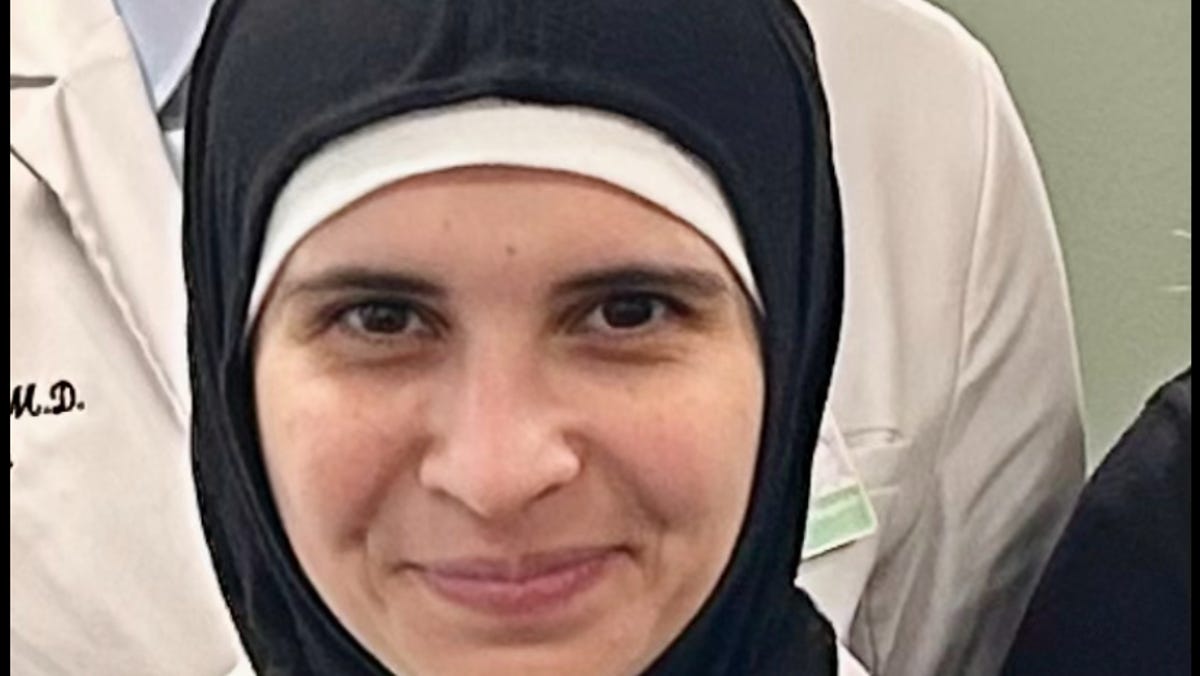What to know about the Alien Enemies Act of 1798
President Trump wants to invoke the Alien Enemies Act of 1798. Here’s what you need to know about the wartime law.
- Dr. Rasha Alawieh, a specialized kidney doctor with Brown Medicine, was deported last week despite having a valid visa.
- Customs officials checking her phone at the airport say they found ‘sympathetic’ photos of Hezbollah leaders, leading to her deportation.
- Alawieh’s colleagues say she never talked politics and was an excellent doctor.
BOSTON – The federal government said in court papers filed Monday that a Rhode Island physician, Dr. Rasha Alawieh, was deported from Logan Airport last week after customs and border officers found “sympathetic photos and videos” of Hezbollah leaders on her cell phone.
“With the discovery of these photographs and videos, CBP questioned Dr. Alawieh and determined that her true intentions in the United States could not be determined,” the documents said.
“As such CBP canceled her visa and deemed Dr. Alawieh inadmissible to the United States.”
What was found on Dr. Alawieh’s cell phone?
According to government filings, Alawieh, 34, of Providence and a kidney transplant doctor for Brown Medicine, told customs and border officials that she followed the religious and spiritual teachings of the late Hezbollah leader Hassan Nasrallah “but not his politics.”
Nasrallah was killed in an Israeli air strike on Hezbollah’s headquarters on Sept. 27, 2024.
The documents said Alawieh had attended a commemoration for Nasrallah during her recent two-week visit back to Lebanon to visit her family.
In an affidavit, a CBP officer reported asking Alawieh about photos found on her phone of Nasrallah and Iranian cleric Ali Khamenei that had been deleted one or two days before her return flight to Boston.
Alawieh replied “I’m a Shia Muslim. He’s [Khamenei] a religious figure. It has nothing to do with politics. It’s all religious, spiritual things.”
Alawieh allegedly told the officer she deleted the photos because she didn’t want to give the perception she supported Hezbollah.
Why was Dr. Rasha Alawieh deported, despite court order?
The court documents were filed prior to a scheduled hearing in U.S. District Court Monday, where a judge ordered authorities to explain why Alawieh, traveling on a valid H-1B visa, had been deported Friday allegedly after his directive that they not do so without giving him 48 hours’ notice to review the case.
The hearing was scheduled for 10 a.m., but was continued to give the government more time to address the allegations. No new hearing date has been set, but CBP has until March 24 to respond.
In its initial response, lawyers for the government said it did not receive notice of the court’s order from their legal counsel until after Alawieh “had already departed the United States” and that “at no time would CBP not take a court order seriously or fail to abide by a court’s order.”
Clare A. Saunders, a lawyer for Alawieh, contended in a court submission that she went to Logan Airport and spoke to at least two custom offers after the judge’s order had been issued shortly after 7 p.m.
One of them, identified in her statement only as Chief Kane, “stated that he couldn’t do anything with the order because I was showing him an electronic copy. He asked me to please produce a printed version.”
Alawieh’s Air France flight to Paris was scheduled to leave at 7:45 p.m.
Colleagues say Alawieh is among just a few Rhode Island nephrologists
Dr. Susie Hu, interim director of Brown Medicine’s Division of Kidney Transplant & Hypertension, was among Alawieh supporters in court Monday.
She said Alawieh was a highly competent doctor, devoted to her patients. As to the photographs found on her phone, Hu said everyone has all kinds of photographs on their phones and these photographs in no way implicated her as a terrorist sympathizer, she said.
Dr. Douglas Shemin, former director of the division, said Alawieh, who had studied and worked in the United States for six years, was hired last July after a national search.
He said she is one of only three trained nephrologists in Rhode Island and desperately needed.
Both Hu and Shemin said they had never heard Alawieh talk about politics and that the division had a diverse staff of doctors.
Alawieh worked at Rhode Island Hospital evaluating potential kidney transplant recipients and followed the progress of those patients after their procedures.
The Division of Kidney Transplant & Hypertension has 1,300 patients enrolled in the program, said Hu.
Contact Tom Mooney at: [email protected]
